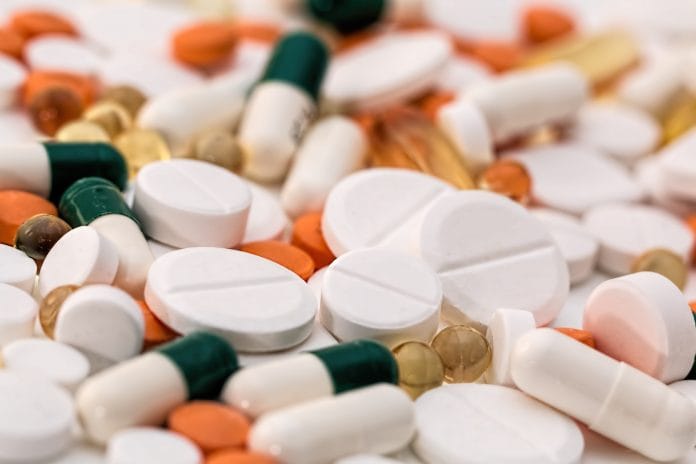New Delhi: Three more drugs that were banned as part of the Indian government’s first crackdown on fixed-dose combinations (FDCs) or “drug cocktails” in 2007 have received the all-clear from the Modi government, ThePrint has learnt.
The decision was conveyed by Drug Controller General of India (DCGI) V.G. Somani — who heads India’s apex medicine watchdog CDSCO — in a letter to state-level drug authorities. The letter, which is dated 8 September and also marked to the Union health ministry, has been accessed by ThePrint.
“As per the DTAB (Drugs Technical Advisory Board, a high-level government panel) dated 29 July, there are three more FDCs which have been considered as rational under the 294 FDCs category,” Somani said in the letter.
A drug is categorised as “rational” when a combination drug is established to have a proven advantage over a single-compound drug.
With this, a total of 86 FDCs from the 2007 list of 294 cocktails are now in the clear. The three FDCs comprise a hypertension drug (Losartan + Atenolol + Hydrochlorothiazide), a medicine for neuropathic pain (Duloxetine + Methylcobalamin) and another for nutritional deficiencies (Methylcobalamin + Vitamin B6 + Folic Acid Uses).
FDCs combine more than one drug in a single pill. The idea is to ease compliance for those required to take multiple medicines as part of long-term treatment, or when the combination is proved to have a clear benefit over single-compound drugs.
They have been under the scanner because a lax regulatory framework allowed several unscientific combinations to flood the market, and there are also fears that they may increase drug resistance.
While the three drugs in question were banned in the first round 13 years ago, hundreds of others have since been outlawed in a continuing government crackdown. Those on the 2007 list remain subjudice as the ban had been challenged by many of the manufacturers. Top manufacturers of the drug include Sun Pharma, Torrent Pharma and Wockhardt.
The 28 November 2007 ban, although termed significant, also proved controversial as the drugmakers concerned managed to get a stay from the Madras High Court. The case continues in the Supreme Court, where it was moved at the central government’s instance.
However, the three fresh approvals come amid a lacklustre response to the clearance accorded to 83 other drugs on the list.
Also read: Govt approves manufacture of 471 cocktail drugs related to vitamins, minerals, micronutrients
Despite approval, lukewarm response from drugmakers
Drug manufacturers receive approvals from state licensing authorities, but the Modi government, last year, laid down guidelines for them to seek the DCGI’s consent to churn out the 83 FDCs that were given the all-clear.
However, there has been a lukewarm response from manufacturers, which has forced the government to extend application deadlines more than once.
On 27 February 2019, the DCGI released the detailed procedure manufacturers could follow to obtain permission. The deadline for applications was extended in August last year, and is currently set at 31 March 2021, with the government warning of no further extensions.
In his letter, Somani acknowledged the concerns about there being “no mention of strength and dosage forms in the list” issued by the DCGI. He then clarified that permissions will be based on the “(same) dosage form and strength licensed prior to 28 November 2007”.
Speaking to ThePrint, industry insiders said there are other factors behind the less-than-enthusiastic response too, including the high cost of application per drug combination, and change in drug-makers’ product portfolio over the past decade.
Under new clinical trials rules released in March 2019, the government increased the application fees for manufacturing approval to Rs 2,00,000 per FDC from Rs 15,000 per FDC.
“If I need approval for 10 FDCs from the list of 86 approved drug combos, I need Rs 20 lakh. Many companies don’t want to spend money on these controversial combos, right now,” said a senior official representing a top lobby of drugmakers in India.
“Moreover, as the matter remained in court for years, several drugmakers have already tweaked or discontinued their products,” the official added.
An official working at a Mumbai pharmaceutical company said “some rules for filing applications were not clear, such as the rule on dosage and strength of FDCs”. However, the official added that they “will consider filing some applications soon”.
Also read: Banning 328 ‘cocktail’ drugs not a witch hunt, says officer behind the crackdown







Is some GUJJU company behind these three drugs?